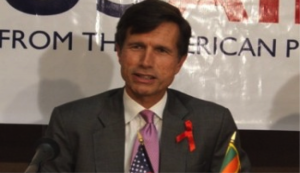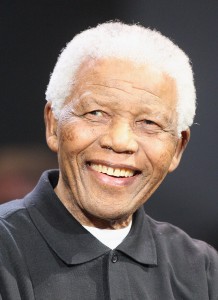Out of hurting stalemate
Battle heats up
For the past three years the issue of war crimes and human rights violations has been hanging over Sri Lanka. Every six months or so, especially around the time for the UN Human Rights Council to meet in Geneva, the battle heats up. On this occasion, the government has

US envoy Robert Blake: "The significance of the US position is that it is apparently not insisting on an independent international mechanism. Instead it is asking for a “full, credible and independent accounting of and accountability for those who violated international humanitarian law” as identified by the visiting US envoy who has accordingly expressed his interest in the forthcoming report of the Commission on Lessons Learnt and Reconciliation"
strongly criticised the UN Secretary General Ban Ki-moon for deciding to transmit the report of his Advisory Panel on Sri Lanka to the office of the Human Rights Commissioner as well as that of the President of the Human Rights Council without informing the Sri Lankan government in advance. The government is also showing its video titled “Lies Agreed Upon” on the sidelines of the official meetings taking place in Geneva. These are amongst the various maneuvers meant to put the other side on the defensive and to line up support for their own cause.
Like bulldogs
On the one side of the divide there is the Sri Lankan government and its allies, which include like-minded governments mainly from the developing and non-Western world. On the other side is a section of the international community who take a stand of commitment to the cause of human rights. This includes the Tamil Diaspora that supported the LTTE during the time of the war and has still not engaged in self-criticism on that count. There are also leading human rights organizations that put principle before politics. They have been forthright in their criticism of those who violate human rights, whether they be the United States in its many wars against terrorism or the Tamil Diaspora supporters of the LTTE. They have become like bulldogs, not letting go of the offender they have caught.
The more serious problem for the Sri Lankan government is the attitude of several Western governments which were very supportive of Sri Lanka in the past. They are the important actors who need to be won over. These governments are now getting locked in an oppositional position to the Sri Lankan government on the issue of war crimes accountability. They are in a position to impose economic sanctions that could be very detrimental to the country’s economy. They are also joining with the human rights organizations and Tamil Diaspora in insisting on the issue of accountability for the past. The five day visit to Sri Lanka of US Assistant Secretary of State Robert O Blake is evidence of the continuous interest that the US government is taking in the matter. As the US is both the world’s superpower and one of the largest importers of Sri Lankan exports, the government did well to see his visit as an opportunity to get out of the stalemate.
IMPORTANT DIFFERENCE
In his statement to the media prior to departing from Sri Lanka, Mr Blake said that the announcement that the U.N. Secretary General will transmit the Panel of Experts report to the UNHRC and the UNHCHR underlines the need for a comprehensive national reconciliation process that includes a full, credible and independent accounting of and accountability for those who violated international humanitarian law. He expressed the hope that the report of the Commission on Lessons Learnt and Reconciliation appointed by President Mahinda Rajapakse last year will address the allegations raised in the Panel of Experts report. There appears to be an important difference between the approach of the US government and that of many other the human rights organizations and Tamil Diaspora. The latter are representative of the position that insists on an independent international mechanism as the best and only way to ascertain the truth of what happened in Sri Lanka during the course of the war. The UN panel report itself makes such a recommendation. The failure of Commissions of Inquiry appointed by successive Sri Lankan governments of the past to be either effective or credible is at the basis of this demand.
Wait and see
The significance of the US position is that it is apparently not insisting on an independent international mechanism. Instead it is asking for a “full, credible and independent accounting of and accountability for those who violated international humanitarian law” as identified by the visiting US envoy who has accordingly expressed his interest in the forthcoming report of the Commission on Lessons Learnt and Reconciliation. Although human rights organizations such as Amnesty International and Human Rights Watch have made strong critiques of the LLRC and refused to give evidence before it when invited to do so, the US government has not publicly joined in this critique. It has adopted a more respectful wait-and-see attitude. The hope is that the LLRC will live up to the expectations of those who have placed their trust in the competence and integrity of the commissioners.
The LLRC’s final report is only due in mid November. This will be after the current session of the UN Human Rights Council ends. There is a possibility of this report being tabled for discussion at the next session of the HRC in Geneva in March 2012. In fact the US government has already informed the Sri Lankan government that it expects the LLRC’s final report to be discussed on that occasion. The year 2012 is also the year that Sri Lanka’s universal periodic review in the UN falls due. Every four years, every country in the UN in rotation is subjected to this human rights review as part of its obligation to the United Nations. This can be a difficult period for the government unless it adequately prepares itself for the challenge.
FUTURE KEY
On the surface it appears that the concerns about human rights in Sri Lanka are both unfair and exaggerated. The country is at peace, economic growth is taking place at a healthy 7-8 percent, and the government remains popular with the masses of the people. This is better than what obtains in most other countries of the world. A recent public opinion poll showed that President Mahinda Rajapaksa enjoys a 91 percent public approval rating and another one showed that 59 percent of those polled thought that the country was most democratic during his term of office. The lifting of the State of Emergency and the absence of terrorist strikes such as occur regularly in neigbouring countries would reinforce the impression of normalcy in the polity.
Suffering
But there is another reality also. Those who visit the north and east of the country where the war was fought most ferociously, and talk to the people, come away appalled at the continuing plight of those who suffered so terribly during the war. The misallocation of resources to the
electorates of government leaders is grotesque. The continuation of militarized governance in the north and east, regardless of the lifting of the State of Emergency, undermines the promise of normalcy there. Election results from that part of the country bear out the disenchantment with the government. But criticism of the government is muted. Much of the media engages in self censorship not wishing to be overly critical of the government. The memory of white van abductions is still alive and the association of grease devil attacks with the government continues to perpetuate a culture of fear at all levels.
The problems of governance within Sri Lanka are not unique. They are to be found in other countries too, at similar stages of economic and political development, whether they be Indonesia, Pakistan or Philippines. There is corruption, abuse of power, impunity and misallocation of resources just as in Sri Lanka. Compared to these countries, Sri Lanka has an advantage. It has a government leadership that is decisive and has popular backing from a big majority of the population. Unfortunately, this asset is now being squandered on fighting a seemingly endless international battle with human rights organizations and governments that want accountability for the past. Sri Lanka needs to get out of this vicious cycle. What happened in the past will not go away, neither will the international pressure. There is a need to learn from the experience of other countries that were faced with similar post-war challenges and become a model of post-conflict hope and reconciliation, like South Africa under Nelson Mandela was.


October 8, 2011 at 3:23 pm
don’t skirt around the issues Jehan even though we understand you are not free to write what you really think
September 19, 2011 at 3:28 pm
Dear Dr. Jehan, it is appreciated if you can at least now (since I have requested) quote the reference source of those so called polled, stated under FUTURE KEY paragraph of above article, so that we can see who and how those polls have been conducted. As a learned doctor, you obviously know the fact that research result is primarily subject to its methodology and then to capacity/reliability of the party who conducted it. Therefore, if you don’t quote the source, your point is no good.